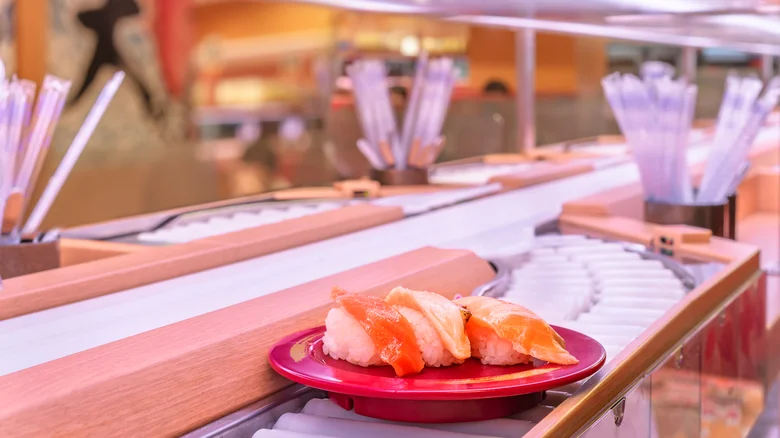Introduction
In the realm of unhygienic behavior in restaurants, a new term has emerged – “sushi terrorism.” This phrase, coined in Japan, refers to individuals engaging in problematic actions at conveyor belt sushi restaurants. From children touching clean plates to teenagers licking the tops of soy sauce bottles, these acts of negligence have sparked concerns about food safety and led to legal consequences. In a recent case, a high schooler finds themselves facing a hefty lawsuit of $480,000 after a viral soy sauce-licking video caught the attention of authorities.
The Rise of “Sushi Terrorism”
While occasional cases of unhygienic behavior in restaurants are not unheard of, the concept of “sushi terrorism” sheds light on a growing trend of individuals disregarding restaurant etiquette and compromising public health standards. Conveyor belt sushi establishments, where plates of sushi rotate on a conveyor belt for customers to choose from, have become a popular dining option worldwide. However, this rise in popularity has also seen an increase in incidents involving unhygienic behavior.

The Viral Soy Sauce-Licking Video
One particular incident has grabbed headlines and become emblematic of the repercussions faced by those engaging in unhygienic acts at sushi restaurants. In this case, a high school student filmed themselves licking the tops of soy sauce bottles at a conveyor belt sushi restaurant and shared the video on social media platforms. The video quickly went viral, drawing widespread condemnation from the public and authorities alike.
Legal Consequences and Financial Ramifications
The consequences for the high schooler in question have been severe. The owner of the restaurant, whose reputation suffered due to the incident, decided to take legal action. The lawsuit filed against the student seeks damages totaling $480,000, aiming to compensate for the financial losses incurred by the business, as well as to serve as a deterrent against future acts of unhygienic behavior.
The Importance of Restaurant Etiquette and Food Safety
This case serves as a reminder of the significance of restaurant etiquette and the critical need to maintain high food safety standards. Unhygienic behavior can have far-reaching consequences, including reputational damage to businesses, potential health risks to customers, and legal ramifications for those responsible.
Restaurants invest substantial resources in ensuring that their premises adhere to strict hygiene protocols and provide a safe dining experience. However, the actions of a few individuals can undermine these efforts, potentially jeopardizing the health and well-being of patrons.
Promoting Responsible Dining Practices
To combat the rise of “sushi terrorism” and other forms of unhygienic behavior in restaurants, it is crucial for both individuals and establishments to take responsibility. Customers should be mindful of their actions, adhering to basic hygiene practices and treating restaurant premises with respect.
Restaurant owners and management must prioritize staff training on food safety protocols, reinforce cleanliness standards, and establish clear guidelines for customer behavior. Moreover, regular monitoring and surveillance can help identify and address instances of unhygienic conduct promptly.
Conclusion
The case of the high school student being sued for $480,000 over a viral soy sauce-licking video serves as a wake-up call for society to take restaurant etiquette and food safety seriously. The term “sushi terrorism” highlights the need to address unhygienic behavior in conveyor belt sushi restaurants and other dining establishments. By promoting responsible dining practices, fostering awareness of food safety, and enforcing legal consequences, we can strive to maintain a hygienic and enjoyable dining experience for all.
Read More: Bacon Lovers Rejoice: Denny’s Brings Back the Legendary Baconalia Menu









